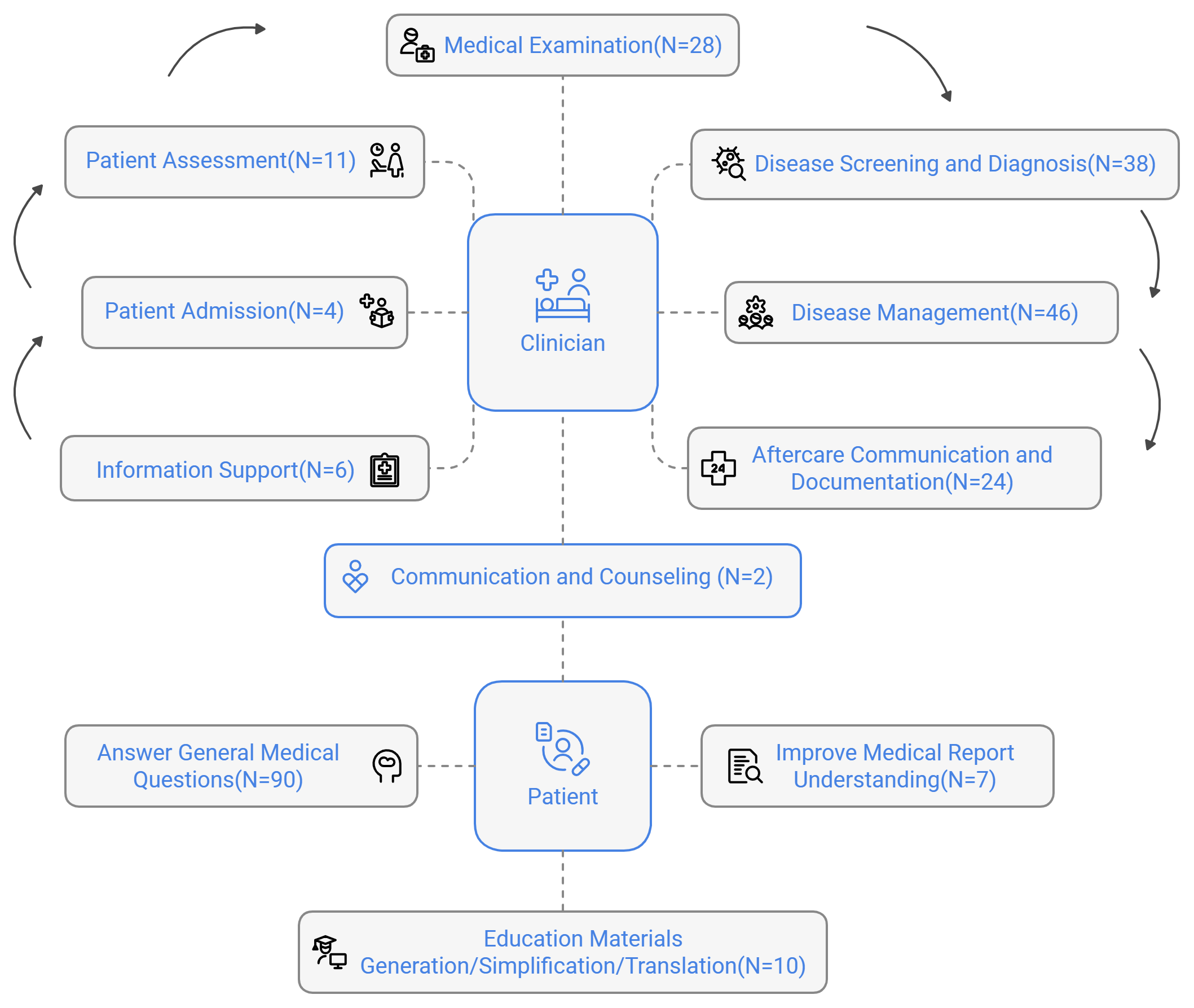Recent Research Articles
Chuhong, Bin, Ying, Ying | 2024-10-25
To explore research hotspots and theme trends in artificial intelligence in nurse education using bibliometric analysis.
Method: Bibliometric analysis using Bibliometrix (based on R language), CiteSpace, Vosviewer, and Pajek.
Dataset: Literature from the Web of Science Core Collection from the time of construction to October 31, 2023.
Read More
Recent Research Articles
Ki Wan, Mohamed, Sierra Hewett, Jon-Paul | 2024-10-21
To discuss the impact of artificial intelligence on facial plastic and reconstructive surgery and its potential future integration in clinical settings.
Method: The article discusses current and emerging AI technologies in facial plastic and reconstructive surgery.
Dataset: The abstract does not specify a particular dataset used for the research.
Read More
Recent Research Articles
Y, R, H, Y, L | 2024-10-21
To explore the use of ChatGPT/GPT-4 for post-surgery patient follow-up after oral surgery.
Method: Thirty questions were collected and evaluated by three experienced oral and maxillofacial surgeons based on the responses of ChatGPT/GPT-4.
Dataset: Thirty commonly asked questions related to post-surgery follow-up were used to test ChatGPT/GPT-4's responses.
Read More
Recent Research Articles
Robert, Marc, Annika, Matthias, Eric, Christian, Stephan, Philipp, Can, Christiane, Daniel, Sven | 2024-10-21
To investigate the effects of a state-of-the-art LLM (GPT-4) on the radiologists' diagnostic workflow.
Method: A retrospective study where six radiologists read 40 imaging studies, both unassisted and with GPT-4, to assess diagnostic accuracy, confidence, and user experience using linear mixed-effect models.
Dataset: The dataset included 40 radiographic, CT, MRI, and angiographic studies, along with demographic data and symptoms for each.
Read More
Recent Research Articles
Omid, Farhad, Ida, Shahryar, Arman, Gholamreza | 2024-10-18
To explore the diagnostic capabilities of several AI models in enhancing diagnostic accuracy in psychiatry.
Method: A comparative study testing four advanced AI models (GPT-3.5 Turbo, GPT-4, Aya, Nemotron) using prompts on curated clinical cases from the DSM-5.
Dataset: 20 clinical cases curated from the DSM-5 Clinical Cases book covering a wide range of psychiatric diagnoses.
Read More


